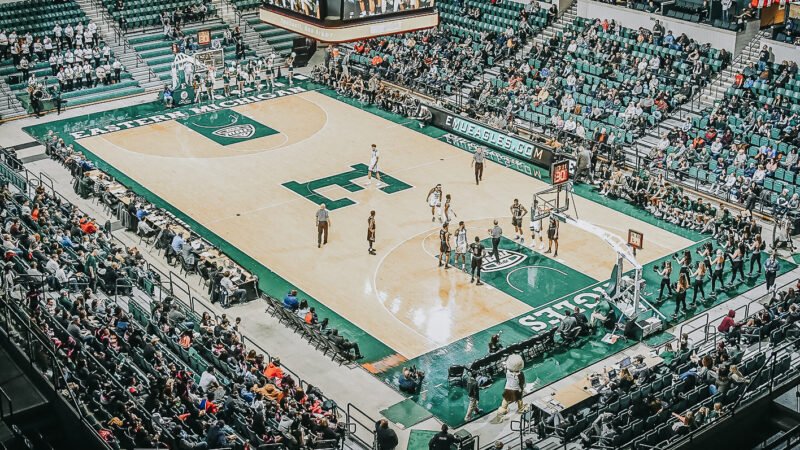Ex-Eastern Michigan Players Refuse NCAA Gambling Probe
Three former Eastern Michigan University (EMU) men’s basketball players declined to participate in an NCAA integrity investigation. The probe focused on potential sports wagering rule violations.

The players: Jalin Billingsley, Da’Sean Nelson, and Jalen Terry, refused to be interviewed after initially cooperating with part of the process. Their refusal prevented the NCAA from confirming if any betting violations actually happened.
Players Halt Cooperation Efforts
The NCAA launched its investigation due to suspicious wagers placed on several Eastern Michigan games during the 2024–25 season. All three players had finished their college eligibility and were among the top scorers for EMU that season.
On January 29, 2025, the players agreed to allow the NCAA to scan their cell phones as part of the evidence collection. However, after the phones were imaged, the players would not participate in formal interviews.
Later, through their lawyers, they informed the NCAA they would not take part in the ongoing investigation. They also requested that the organization destroy the phone images taken earlier. Refusing to cooperate in an NCAA investigation is considered a violation of league rules.
Suspicious Bets Triggered Review
The core of the NCAA’s inquiry centered on several EMU games where unusual betting activity was flagged by sportsbooks. One specific game under close review was Eastern Michigan’s loss to Central Michigan on January 14, 2025. EMU lost the game 82-61.
Betting firms also noticed strange wagering interest on the Eagles to lose in the first half of two other games. These were against Wright State on December 21 and at Toledo on January 7. In all three flagged contests, the EMU team was losing at halftime.
Nelson currently plays professional basketball in Europe. He signed a contract with Fribourg Olympic, the Swiss champions, in July. The three former EMU players are part of a larger NCAA investigation. That probe includes sports wagering allegations against 13 athletes at six different schools.
Committee Issues Warning on Compliance
The Division I Committee on Infractions stated the consequence of the players’ refusal. The committee could not determine if sports betting violations had occurred because the players did not cooperate.
The committee issued a strong statement regarding such behavior. They noted that when individuals choose not to cooperate in integrity cases, those choices will face “serious consequences.” These results can include bans from athletic activity, loss of eligibility, and public naming in the violation decision. Although the refusal could mean a permanent loss of eligibility, these three former players had no remaining time to play college sports.
Recommended
